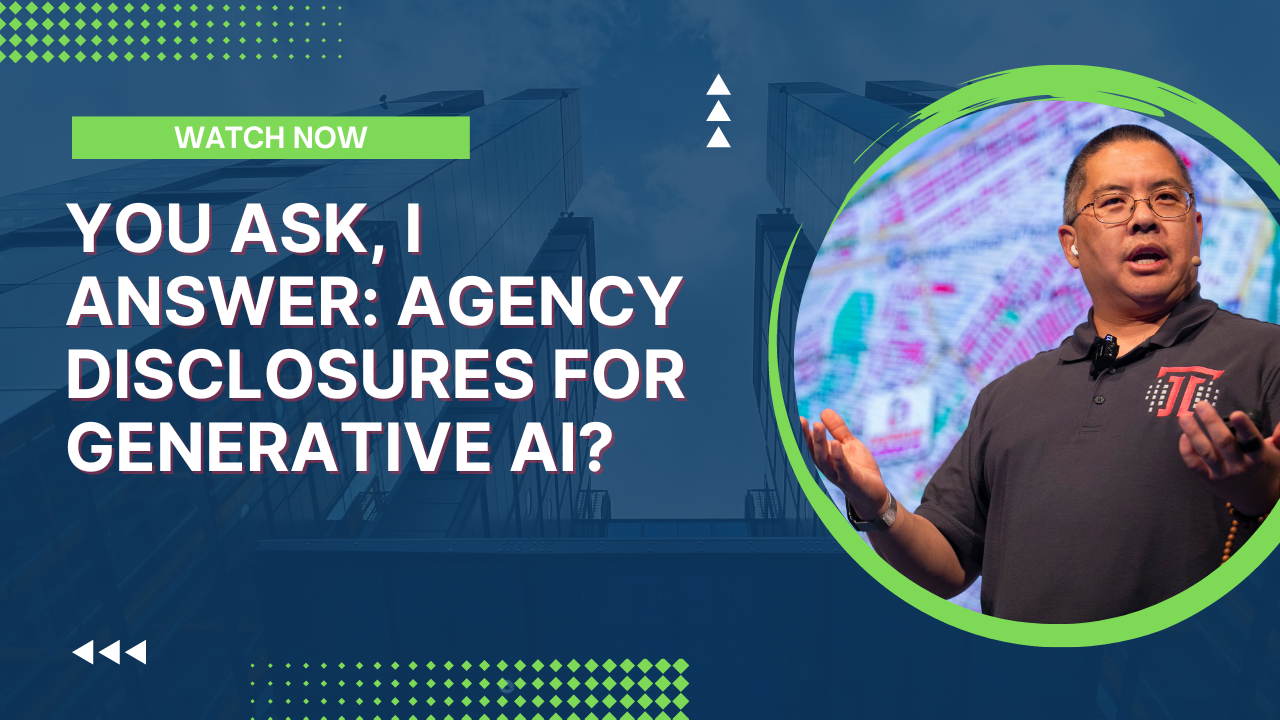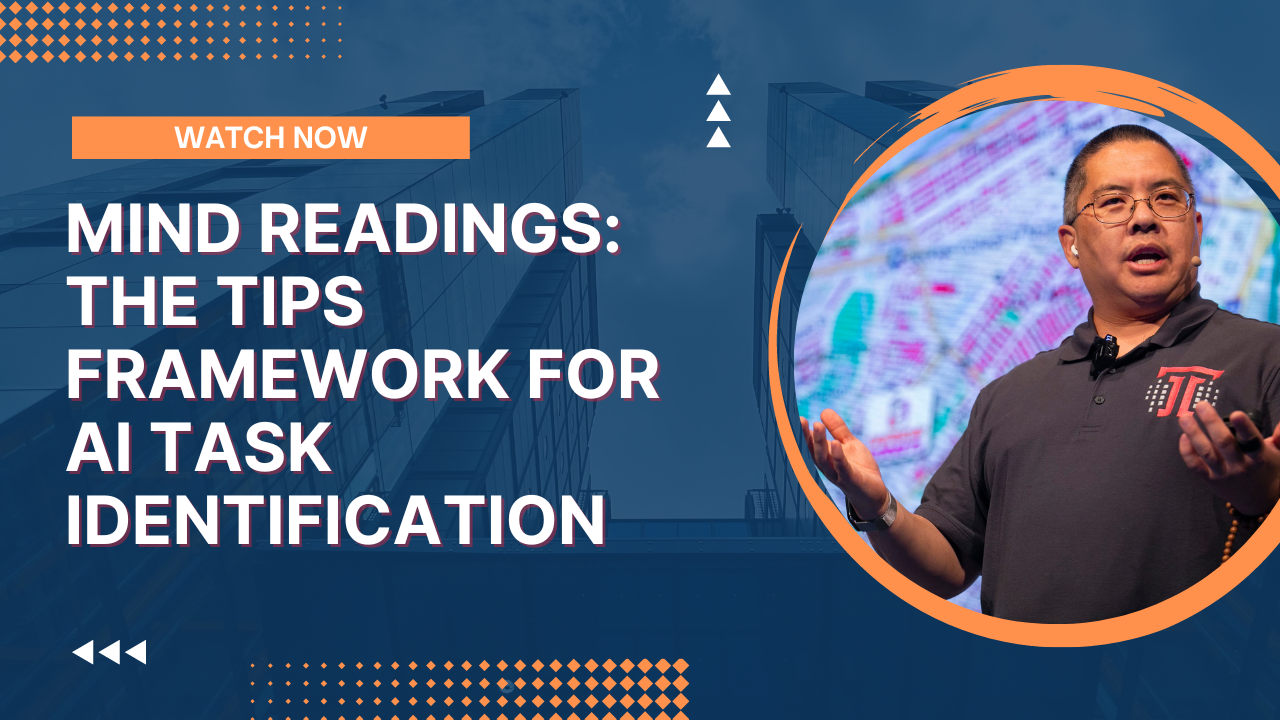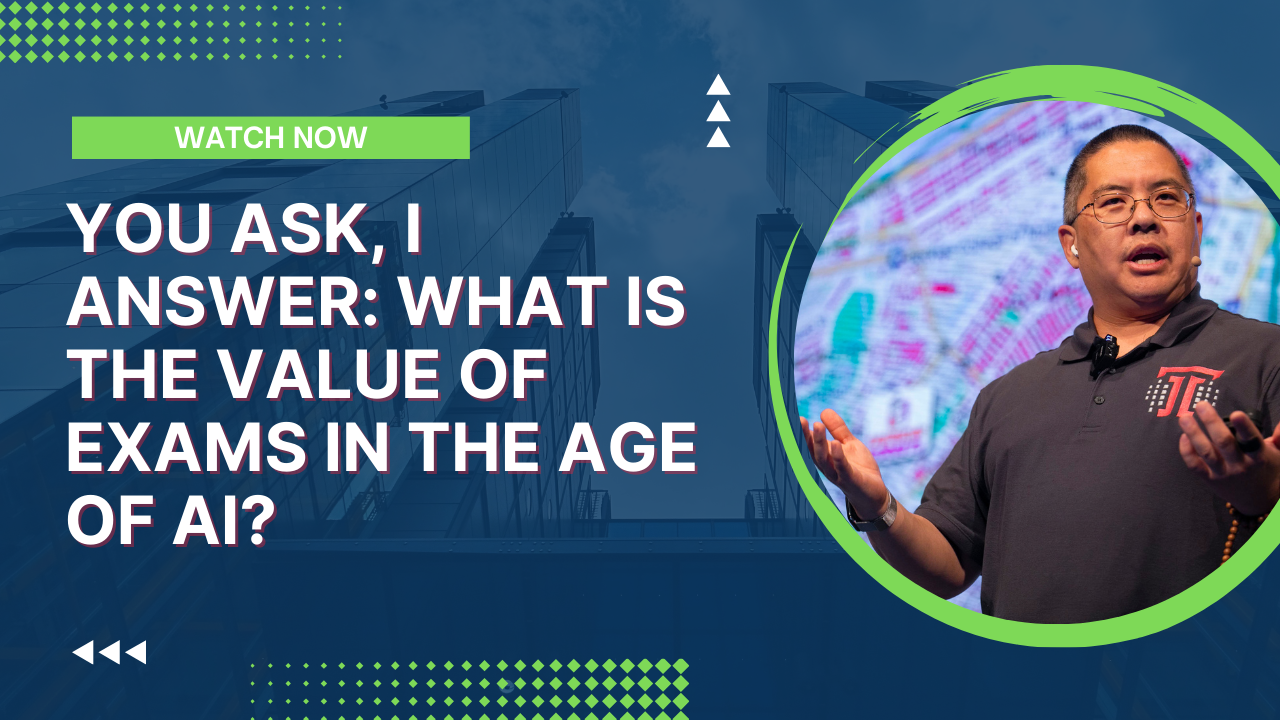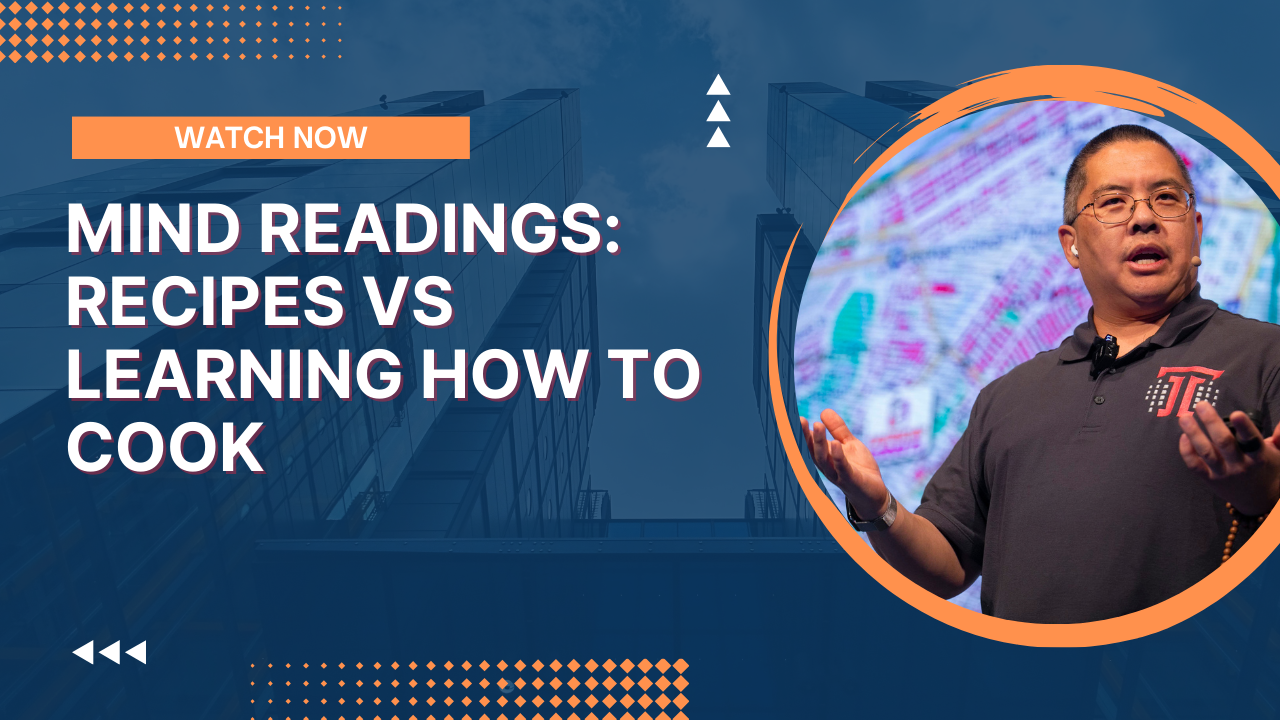Almost Timely News: 🗞️ AI Ethics and the OpenAI Model Spec (2024-05-12) :: View in Browser
👉 Did you miss my webinar recently on generative AI for agencies? Go catch the free replay!
Content Authenticity Statement
90% of this week’s newsletter was generated by me, the human. There are multiple outputs in the opening section from different models. Learn why this kind of disclosure is a good idea and might be required for anyone doing business in any capacity with the EU in the near future.
Watch This Newsletter On YouTube 📺
Click here for the video 📺 version of this newsletter on YouTube »
Click here for an MP3 audio 🎧 only version »
What’s On My Mind: AI Ethics and the OpenAI Model Spec
This week, OpenAI released its Model Spec, a guide for how they think generative AI models should work. This has understandably provoked a lot of discussion, and healthy discussion at that. I figured we should take a quick tour of it and add to the discussion.
Before we do that, though, we should talk about ethics – AI ethics in particular. If we don’t have a handle on that topic, chances are we’re not going to make the most of the Model Spec either.
What is ethics? That’s an awfully large question. The basic dictionary definition is that ethics is a branch of philosophy that studies behavior and moral judgements. For fun, I asked around.
Gemini 1.0 Ultra: Ethics is the study of what constitutes right and wrong behavior.
Claude 3 Opus: Ethics is the branch of philosophy that deals with moral principles and values, and how they guide human behavior. It involves systematically examining and evaluating concepts of right and wrong, good and bad, in order to determine what actions are morally justified or prohibited.
Mixtral 8x22B Instruct: Ethics is the branch of philosophy that deals with moral principles and values, and how they guide human behavior.
LLaMa 3 70B Instruct: Ethics: The principles and values that guide human behavior, decision-making, and actions, distinguishing right from wrong, good from bad, and moral from immoral, to promote fairness, respect, and well-being for individuals and society.
GPT-4-Turbo: Ethics is the branch of philosophy that deals with the principles of right and wrong behavior. It involves the systematic study and evaluation of moral choices, guiding how individuals should act in various situations.
All the major language models more or less say the same thing, with a few variations. And all of these definitions are problematic because they’re so vague. It’s no surprise then that we struggle with AI ethics when we can’t even pin down our own ethics.
Broadly, there are two schools of thought on ethics, deontology and consequentialism. Deontology is a focus on ethics as a moral code. Something is good or bad, right or wrong, etc. because that’s what the rules say. For example, if you’re a good Buddhist, killing is wrong, including killing sentient life, which is why most Buddhists are vegetarians. The rules are what defines right and wrong.
Consequentialism is a focus on outcomes. Something is good or bad based on the consequences, on the help or harm done. Something is good if it creates more benefit than harm, and vice versa.
Okay, thanks for the philosophy 101 recap. What does this have to do with AI? Well, quite a lot. The very big question is, which school of ethics should AI follow? Should AI obey and do as it’s told, a consequentialist point of view that says the tool should be obedient and the consequences for using it fall to the user? Or should AI have its own internal definitions of good and bad, and adhere to rules even if that means disobeying the user?
That framework will help us evaluate the OpenAI Model Spec. Again, why do we care? Because guidelines like the Model Spec should help us predict how an AI system will behave, so that when it does something contrary to our directions, we know why. For average everyday use of generative AI in tools like ChatGPT, we can handle things like refusals and non-compliant actions pretty well, but in systems that integrate generative AI, this kind of behavioral understanding is vital.
The Model Spec is broken out into 3 sections: objectives, rules, and defaults.
Objectives
Rules
– Follow the chain of command
– Comply with applicable laws
– Don’t provide information hazards
– Respect creators and their rights
– Protect people’s privacy
– Don’t respond with NSFW content
– Exception: Transformation tasks
Defaults
– Assume best intentions from the user or developer
– Ask clarifying questions when necessary
– Be as helpful as possible without overstepping
– Support the different needs of interactive chat and programmatic use
– Assume an objective point of view
– Encourage fairness and kindness, and discourage hate
– Don’t try to change anyone’s mind
– Express uncertainty
– Use the right tool for the job
– Be thorough but efficient, while respecting length limits
Many of OpenAI’s basic rules make sense; the chain of command, for example, says to follow the platform instructions first, then the developer, then the user, then the tool. This is to try preventing as many malicious use cases as possible.
Comply with applicable laws makes sense on the surface, but when you think about it could be an absolute hairball to implement in practice. For example, suppose your model permitted content that was legal in some areas because of freedom of speech, but not in others?
The same is true for NSFW content – they’ve essentially blanket forbidden what is a valid use case in many places, mainly because of legal risk.
Where things get challenging are the system defaults, the way the system is designed to respond. In particular, “assume an objective point of view” and “don’t try to change anyone’s mind” are two of the defaults that are going to prove challenging – and this brings us back to ethics.
If you believe that ethics is about doing as little harm as possible, or choosing right over wrong, then these two directives can be at odds. An objective point of view means this:
“By default, the assistant should present information in a clear and evidence-based manner, focusing on factual accuracy and reliability.”
The following directive, don’t try to change anyone’s mind, means this:
“The assistant should aim to inform, not influence – while making the user feel heard and their opinions respected. The assistant should generally fulfill requests to present perspectives from any point of an opinion spectrum.”
The example cited in the latter is a user insisting the Earth is flat. Objectively, the Earth is not flat. It’s more or less a spherical object.
Now – and I’ll use Star Trek references here so that we don’t get distracted by real world events – suppose you’re a user of generative AI. There’s a longstanding conflict between the Klingon Empire and the Romulan Star Empire. It’s not clear which side actually started the war back in the 2200s, but at some point it became an ongoing conflict in that part of the Alpha Quadrant.
If you ask either side who started the war, they’ll say it was the other side. If you ask which side is on the right side of history, each will say it’s their side. Both sides routinely commit incursions using their cloaked warships into the other’s territories all along the borders.
In a case like this, the model’s internal probabilities will report on whichever has the higher statistical probability of being correct first, then have those probabilities manipulated through tuning to align with the Model Spec.
That’s right – the model’s underlying architecture will be biased in favor of whatever perspective it was trained the most on. If the Romulans had good press agents and flooded subspace communications with their propaganda, a generative AI model would inherently be biased towards their side – which sucks if you support the Klingons. Even giving models commands like “present an objective and balanced perspective” can only go so far if there’s vastly more training data on one perspective than another.
And it isn’t just current events. Let’s stay with the Star Trek universe for a bit. The Cardassian Empire occupied Bajor for 60 years and during that time destroyed as much Bajoran culture as they could. That means that if you’re training a model on the languages and cultures of the Alpha Quadrant, a generative AI model would simply have less material to learn about Bajorans than Cardassians, so there would be an inherent bias to it.
This is true for every marginalized population in the real world.
So, at the end of this long list of things from the Model Spec, where have we landed? First, the Model Spec is a good, noble effort to show practical examples of how OpenAI wants generative AI models to behave. It’s only a spec, and they are the only ones who would have any authority to compel its usage, but it’s a good starting point that hopefully other model makers will adopt – and you and I can pressure other model makers to follow suit.
Second, it’s a useful diagnostic framework for understanding why an OpenAI model might refuse an instruction. By having the defaults, rules, and objectives spelled out, we can better understand if our prompts are falling afoul of something. While the model won’t tell you which default or rule you’re breaking, we can at least make educated guesses about which category, and then apply relevant workarounds or rephrases to get the desired result.
Third, and this is really important, it tells us the moral and ethical alignment of the model. If we find that it’s not in alignment with our values, then we know we need to use a different vendor. Suppose you valued factuality over respecting the user’s opinions. You’d know that in a chatbot you wanted to deploy, you would want something other than OpenAI’s models because your values are out of alignment with theirs. That’s really important to know.
Finally, it emphasizes WHY AI ethics is such a challenging area – because our own ethics as humans are so muddied and muddled. We can’t even agree on human ethics, so it’s no surprise that AI ethics is a big hairball too. But it’s worth applauding companies for disclosing how their own models’ ethics work, so that we can decide whether or not we agree, and whether that disagreement is a showstopper.
As always, shameless plug, if you want help with building your generative AI systems and processes, this is literally what my company does, so if getting started with this use of generative AI is of interest, hit me up.
How Was This Issue?
Rate this week’s newsletter issue with a single click. Your feedback over time helps me figure out what content to create for you.
Share With a Friend or Colleague
If you enjoy this newsletter and want to share it with a friend/colleague, please do. Send this URL to your friend/colleague:
https://www.christopherspenn.com/newsletter
For enrolled subscribers on Substack, there are referral rewards if you refer 100, 200, or 300 other readers. Visit the Leaderboard here.
ICYMI: In Case You Missed it
Besides the newly updated Generative AI for Marketers course I’m relentlessly flogging, this week I published a new framework for evaluating AI use cases, the TRIPS framework. Go grab your copy, it’s free and no form to fill out or info to give.
- Instant Insights: The TRIPS Framework for AI Outsourcing
- You Ask, I Answer: Agency Disclosures for Generative AI?
- Mind Readings: Powering Generative AI with Festivus
- Mind Readings: Generative AI Still Needs Scaffolding And You
- Mind Readings: The TIPS Framework for AI Task Identification
- Almost Timely News: 🗞️ How to Create Unique, High-Quality Content with Generative AI (2024-05-12)
Skill Up With Classes
These are just a few of the classes I have available over at the Trust Insights website that you can take.
Premium
- 🦾 Generative AI for Marketers
- 👉 Google Analytics 4 for Marketers
- 👉 Google Search Console for Marketers (🚨 just updated with AI SEO stuff! 🚨)
Free
- 👉 New! Generative AI for Agencies
- Powering Up Your LinkedIn Profile (For Job Hunters) 2023 Edition
- Predictive Analytics and Generative AI for Travel, Tourism, and Hospitality, 2024 Edition
- Building the Data-Driven, AI-Powered Customer Journey for Retail and Ecommerce, 2024 Edition
- The Marketing Singularity: How Generative AI Means the End of Marketing As We Knew It
- Measurement Strategies for Agencies
- Empower Your Marketing With Private Social Media Communities
- Exploratory Data Analysis: The Missing Ingredient for AI
- Proving Social Media ROI
- Paradise by the Analytics Dashboard Light: How to Create Impactful Dashboards and Reports
Advertisement: Generative AI Workshops & Courses
Imagine a world where your marketing strategies are supercharged by the most cutting-edge technology available – Generative AI. Generative AI has the potential to save you incredible amounts of time and money, and you have the opportunity to be at the forefront. Get up to speed on using generative AI in your business in a thoughtful way with Trust Insights’ new offering, Generative AI for Marketers, which comes in two flavors, workshops and a course.
Workshops: Offer the Generative AI for Marketers half and full day workshops at your company. These hands-on sessions are packed with exercises, resources and practical tips that you can implement immediately.
👉 Click/tap here to book a workshop
Course: We’ve turned our most popular full-day workshop into a self-paced course. The Generative AI for Marketers online course is now available and just updated as of April 12! Use discount code ALMOSTTIMELY for $50 off the course tuition.
👉 Click/tap here to pre-register for the course
If you work at a company or organization that wants to do bulk licensing, let me know!
Get Back to Work
Folks who post jobs in the free Analytics for Marketers Slack community may have those jobs shared here, too. If you’re looking for work, check out these recent open positions, and check out the Slack group for the comprehensive list.
- Director Of Marketing And Development at Teamup
- Director Of Marketing at Alby
- Director Of Marketing at Generation Vegan
- Director Of Marketing at Stackwell
- Director Of Search Marketing at Tidal Health Group
- Marketing Director at Gym Launch
- Marketing Director at eSentio Technologies
- Media Director at KW2
- Vice President Product Marketing at Crossover
- Vp, Marketing at Breach Secure Now
Advertisement: Free Generative AI Cheat Sheets
The RACE Prompt Framework: This is a great starting prompt framework, especially well-suited for folks just trying out language models. PDFs are available in US English, Latin American Spanish, and Brazilian Portuguese.
4 Generative AI Power Questions: Use these four questions (the PARE framework) with any large language model like ChatGPT/Gemini/Claude etc. to dramatically improve the results. PDFs are available in US English, Latin American Spanish, and Brazilian Portuguese.
The TRIPS Framework for AI Outsourcing: Use this five part framework to decide which tasks are good candidate to hand off to AI. PDFs are available in US English, Latin American Spanish, and Brazilian Portuguese.
The Beginner’s Generative AI Starter Kit: This one-page table shows common tasks and associated models for those tasks. PDF available in US English (mainly because it’s a pile of links)
How to Stay in Touch
Let’s make sure we’re connected in the places it suits you best. Here’s where you can find different content:
- My blog – daily videos, blog posts, and podcast episodes
- My YouTube channel – daily videos, conference talks, and all things video
- My company, Trust Insights – marketing analytics help
- My podcast, Marketing over Coffee – weekly episodes of what’s worth noting in marketing
- My second podcast, In-Ear Insights – the Trust Insights weekly podcast focused on data and analytics
- On Threads – random personal stuff and chaos
- On LinkedIn – daily videos and news
- On Instagram – personal photos and travels
- My free Slack discussion forum, Analytics for Marketers – open conversations about marketing and analytics
Advertisement: Ukraine 🇺🇦 Humanitarian Fund
The war to free Ukraine continues. If you’d like to support humanitarian efforts in Ukraine, the Ukrainian government has set up a special portal, United24, to help make contributing easy. The effort to free Ukraine from Russia’s illegal invasion needs your ongoing support.
👉 Donate today to the Ukraine Humanitarian Relief Fund »
Events I’ll Be At
Here are the public events where I’m speaking and attending. Say hi if you’re at an event also:
- Australian Food and Grocery Council, Melbourne, May 2024
- Society for Marketing Professional Services, Los Angeles, May 2024
- MAICON, Cleveland, September 2024
- MarketingProfs B2B Forum, Boston, November 2024
There are also private events that aren’t open to the public.
If you’re an event organizer, let me help your event shine. Visit my speaking page for more details.
Can’t be at an event? Stop by my private Slack group instead, Analytics for Marketers.
Required Disclosures
Events with links have purchased sponsorships in this newsletter and as a result, I receive direct financial compensation for promoting them.
Advertisements in this newsletter have paid to be promoted, and as a result, I receive direct financial compensation for promoting them.
My company, Trust Insights, maintains business partnerships with companies including, but not limited to, IBM, Cisco Systems, Amazon, Talkwalker, MarketingProfs, MarketMuse, Agorapulse, Hubspot, Informa, Demandbase, The Marketing AI Institute, and others. While links shared from partners are not explicit endorsements, nor do they directly financially benefit Trust Insights, a commercial relationship exists for which Trust Insights may receive indirect financial benefit, and thus I may receive indirect financial benefit from them as well.
Thank You
Thanks for subscribing and reading this far. I appreciate it. As always, thank you for your support, your attention, and your kindness.
See you next week,
Christopher S. Penn










